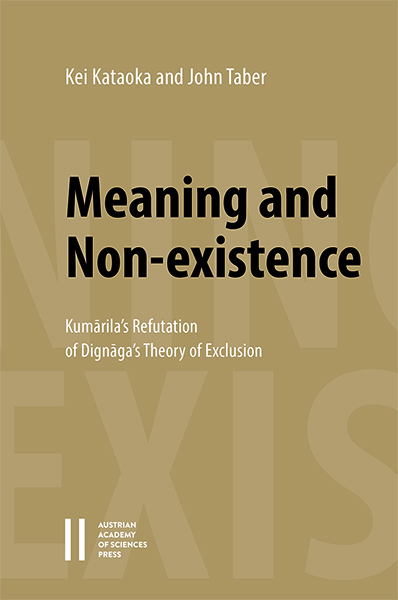
Im Apohavāda-Kapitel seiner Ślokavārttika unternimmt der hinduistische Philosoph Kumārila (7. Jh.) eine Kritik an der buddhistischen Semantik, insbesondere der „Theorie der Sonderung“ oder Apohavāda. Nach dieser Theorie, die vom buddhistischen Denker Dignāga eingeführt wurde, bezieht sich ein Wort auf eine „Sonderung von anderen”. Die Theorie war kennzeichnend für die buddhistische Erkenntnistheorie; die Debatte darüber ist exemplarisch für die buddhistisch-brahmanischen Auseinandersetzungen, die die Entwicklung der klassischen indischen Philosophie geprägt haben. Diese englische Übersetzung des Texts basiert auf einer kritischen Ausgabe und wird von einer laufenden Erläuterung, welche die klassischen Kommentare berücksichtigt, begleitet. Hinzu kommen philologische und historische Annotierungen.
…
In the Apohavāda chapter of his Ślokavārttika, the seventh-century Hindu philosopher Kumārila undertakes an exhaustive critique of the distinctive Buddhist theory of meaning, the “theory of exclusion”, or Apohavāda. According to this theory, which was introduced by the sixth-century Buddhist thinker Dignāga, a word refers not to some positive entity such as a universal, but to an “exclusion”. It became one of the core teachings of the Buddhist epistemological tradition. The debate on it is illustrative of the Buddhist-Brahmin disputes that shaped the development of classical Indian philosophy. This translation of Kumārila’s chapter, together with a critical edition, is accompanied by a running explanation based on the classical commentaries and extensive notes.
2021,
978-3-7001-8641-0
978-3-7001-8899-5
288 Seiten,
22,5x15cm, broschiert, englisch